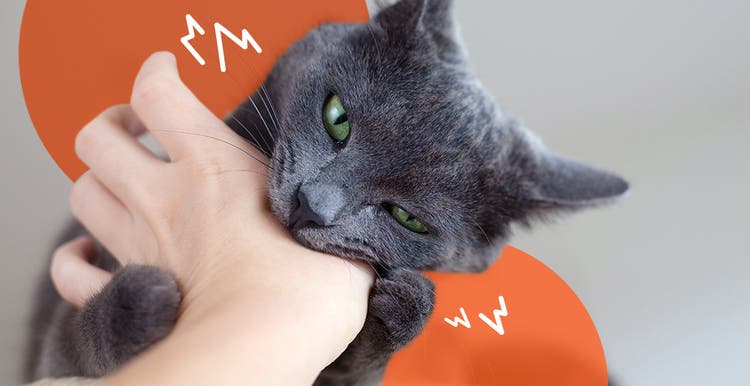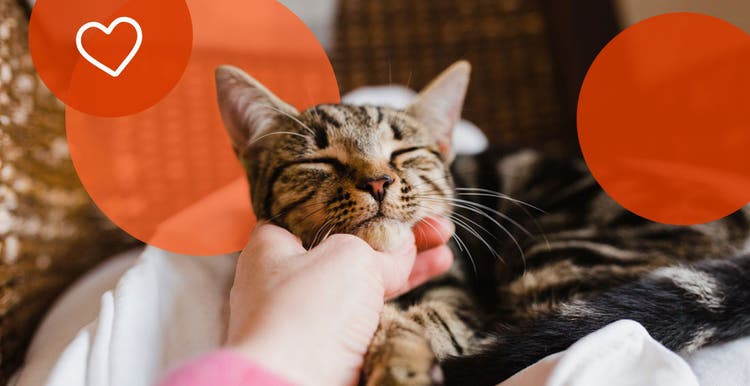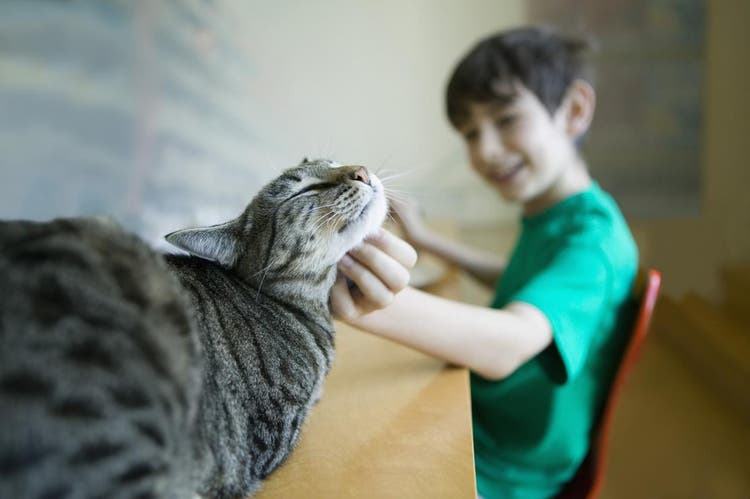What your chatty cat is telling you.
At one point or another, all cat owners wish their pets could speak. Communication would be so much easier - especially if your cat meows excessively all day and, even worse, through the night. Here's what the meowing might mean and how to help curb it.
Why Is My Cat Meowing?
There are many reasons why your cat won't stop meowing. Understanding the reason for the meowing is the first step in solving the issue (and getting a better night's sleep).
- Loneliness or boredom: Your pet deserves all the love you give them, but there's one pitfall - when you're asleep or focused on something else, they may become bored.
- Hunger or thirst: Anyone whose cat has woken them in the early morning knows when their pet wants to eat. Cats rarely let their owners forget it's mealtime.
- Seeing or hearing another cat: While we would love our cats to get along with each other, that's not always the case. If another cat is nearby, such as outside the window, your pet may feel defensive or aggressive.
- Anxiety: Almost everyone deals with anxiety at one point or another, and the same goes for our cats. Major changes, such as moving, a home remodel or the arrival of a new pet, often cause stress.
- Medical issues: If behavioral issues aren't the cause of your cat's excessive meowing, take them to the vet. Your vet can determine whether the cause is medical, such as hyperthyroidism, vision or hearing loss, body pain or dementia.
How to Get a Cat to Stop Meowing
If you've determined your cat's constant vocalization is a behavioral issue, there are some basic fixes you can try.
- Play with your cat before bed. The answer to, "Why is my cat meowing at night?" is often that they're simply not tired. Just as humans sleep better after a physically exhausting day, cats tend to be calmer during the night if they're worn out by bedtime. Not only does an intense play session encourage a good night's sleep, but it's something fun for your cat to look forward to every evening.
- Feed your cat and provide fresh water right before bedtime. The best way to keep your cat from telling you they're hungry or thirsty at night? Provide food and water right before you head to bed to keep them satisfied while you sleep.
- Cuddle up. What cat owner doesn't want an excuse to curl up with their pet? Doing so before you go to sleep helps encourage your cat to relax and, hopefully, sleep through the night.
- Adopt another cat. If your cat is expressing boredom or loneliness, consider getting them a buddy to play with. A second cat can keep them entertained during the day and help wear them out before bedtime. Before you head to the shelter, make sure your cat is comfortable with other cats and won't display aggressiveness.
- Keep your cat away from windows at night. Think of windows as your cat's personal streaming service. Outside activity, including other animals, keeps them entertained for hours. It also keeps them stimulated. Before you go to bed, close blinds and curtains, and block off easy access to windowsills.
- Form a consistent routine. By paying attention to when your cat is most vocal, you can determine a daily routine to keep them entertained and satisfied. Schedule playtime when they want attention. Observe when they are hungry and plan their meals around this; a cat feeder with a timer keeps your cat's eating schedule on track (and solves the problem of getting out of bed to feed them at 5 a.m.).
- Don't cater to them. Of course, the immediate solution to quieting your cat is providing them with what they want, such as treats or attention. Unfortunately, this inadvertently encourages the behavior. Ignore their vocalization, and then, once the undesirable behavior ceases, give your cat an activity to distract them.
Be prepared for the fact that it may take some time to stop your cat from meowing all day or at night, and it may get worse before it gets better. As always, patience is key.
Related Articles

New Cat or Kitten: Our Downloadable Guide
Thinking about adding a feline to the family? There are so many emotional, social and physical benefits to owning a cat. Check out our free guide, also available to download!





